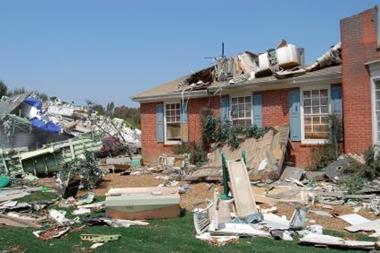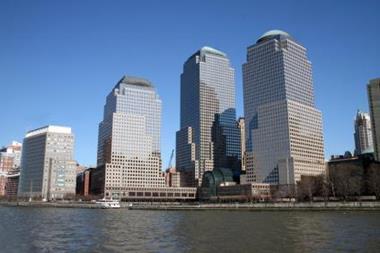Highest levels of political and economic uncertainty for a decade
The World Economic Forum released today Global Risks 2008, which highlights the need for new thinking and concerted action on a number of problems. The report expresses fears that the current liquidity crunch will spark a US recession in the next 12 months and calls for new thinking on systemic financial risk in response to the revolution in financial markets over the last two decades. It also recommends a set of principles for country risk management and examines how the financial sector might take on an increasingly important role in risk transfer in the future.
The report also warns that food security will become an increasingly complex political and economic problem over the next few years, with issues of equity and trade-offs between security and other issues making the design of global policy both difficult and necessary. Greater cooperation on managing vulnerabilities associated with cross-border supply chains and concentrations of production may also be needed. Finally, with the dollar price of oil at record highs, the report recommends an improved approach to securing viable energy supplies in the years ahead.
Global Risks 2008, published in cooperation with Citigroup, Marsh & McLennan Companies, Swiss Re, the Wharton School Risk Center and Zurich Financial Services, highlights key areas of risk that will be a focus of discussions by business leaders and public policy-makers at the World Economic Forum Annual Meeting in Davos later this month.
The report is based on input from a network of more than 100 top business leaders, decision-makers, scientists and other leading academics convened throughout 2007 as part of the World Economic Forum’s Global Risk Network. The topics identified in the report will be at the core of the agenda for the Annual Meeting.
Emerging issues in global risk
Global Risks 2008 focuses on four emerging issues which will impact the world economy and society in the decade ahead. While many of the risks cannot be avoided, they can be better understood, managed and mitigated.
• Systemic financial risk
A re-pricing of risk in financial markets was predicted by some observers at the beginning of 2007 – including by the Global Risk Network – but the scale and nature of the systemic financial crisis of 2007-2008 has raised fundamental questions as to the vulnerabilities within the current model of financial markets. Diversification of risk may have strengthened stability in good times, but systemic financial risk remains acute. Looking at the year ahead, a US recession is possible and economists are divided on whether consumption-led growth in Asia can drive the global economy. In Europe, the prominence of the United Kingdom’s financial sector makes it vulnerable, while large current account deficits in some central and eastern European economies may prove increasingly unsustainable in 2008.
Changes in financial markets over the past two decades have led to the ownership of risks being decentralized, along with greater opportunities for risks to transmit between individual firms and markets – making effective risk management all the more critical. Under normal market conditions, the financial system has improved its capacity to assume and distribute risk, and has become more stable. But, to mitigate the impact of the types of challenges seen in 2007, the report calls for increased public and private sector collaboration on stress testing, liquidity management, risk assessment and prevention to address what it describes as the “fragmentation of ownership of global risks.”
• Food security
In 2007, prices for many staple foods reached record highs and global food reserves are at a 25-year low, making world food supply vulnerable to an international crisis or natural disaster – in some cases giving rise to political instability with “food riots” which have occurred in 2007. Looking ahead, Global Risks 2008 suggests that the drivers of global food insecurity – population growth, lifestyle changes, use of crops to manufacture biofuels and climate change – are likely to sharpen over the coming decade, positioning the world for a potential long-term trend reversal in food prices and leading to a set of complex challenges to global equity.
• Supply chain vulnerability
Improvements in technology and global logistics, along with reduced trade barriers, have led to a historic expansion of international and intra-regional trade over the past 20 years. These improvements have generally led to increased efficiency and global prosperity. However, hyper-optimization of supply chains may also increase vulnerabilities to disruption and concentrations of risk. Moreover, these are often not fully understood. Though supply chains can share risk between many parties, they can also cause risks to be aggregated.
All companies and governments who depend on external suppliers face disruptions to their supply chain; building a new culture in this area, along with an international approach to supply chain risk management across private and public sectors, is among the first steps to broader risk mitigation.
• Energy
The availability of energy resources is key to the global economy, but guaranteeing a safe, secure and sustainable supply – and doing so in line with global commitments to reduce greenhouse gas emissions – is increasingly problematic. With predictions of a 37% increase in oil demand over current levels by 2030, the report sees limited scope for a fall in energy prices over the next decade. This may be good news for oil and gas producers, but it creates an inherent mismatch between those who bear risk and reward, which should be addressed through better dialogue at all levels.
“Global Risks 2008 points to a future of tremendous challenges, but also opportunities for business and government decision-makers to demonstrate their leadership,” said Professor Klaus Schwab, Founder and Executive Chairman of the World Economic Forum. “The interconnectedness of global risks discussed in this report reflects the need for a collaborative framework for response. The upcoming World Economic Forum Annual Meeting will provide a framework for those discussions.”
David Nadler, Vice-Chairman, Marsh & McLennan Companies (MMC), USA, said: “As the report says, systemic financial risk is the most immediate and, from the point of view of economic cost, most severe risk facing the global economy. With so many potential consequences of the 2007 liquidity crunch unresolved, the outlook at the beginning of 2008 is more uncertain than it was a year ago. The US Federal Reserve has projected direct losses related to sub-prime of US$ 150 billion; non-sub-prime financial losses may be considerably greater. Addressing the systemic financial risk identified in this report will be a key topic for business and political leaders in Davos this year.
“Energy supply is also a crucial issue. The global economy has demonstrated remarkable resilience to increases in energy prices since 2004. But the limits of resilience may be close to being reached. Over the next two decades the supply of primary fossil fuel will become tighter with the world economy becoming much more vulnerable to price shocks as a result. The report urges better dialogue at all levels ? between emerging and developed countries and between the corporate sector and government and regulators. A move towards a forward-looking regulatory framework is needed in order to ensure long-term economic viability. This framework should seek to unlock investment and innovation in cleaner energy and, ultimately, deliver an economic price for carbon.”
Risk mitigation: increasing the role of financial markets and better country coordination are key
Despite the financial turmoil of 2007, the financial markets are seen as an increasingly important tool to transfer and mitigate an increasing variety of global risks. The growth of financial markets has opened up new possibilities to help mitigate risks, including the rapid emergence of a new market in insurance-linked securities (ILS), which help provide additional capital to the insurance industry to protect against major catastrophe losses. While the early “cat bonds” were issued into the capital markets to help mitigate losses from wind damage and earthquakes, the ILS market has grown considerably in recent years in the range of risks covered, with total bonds outstanding now at more than US$ 34 billion.
Christian Mumenthaler, Member of the Executive Board of Swiss Re, who served for three years as the group’s Chief Risk Officer, said: “The development of the ILS market has increased the ability of insurers and reinsurers to accept peak risks such as US hurricanes. This has become increasingly important because climate change has elevated the frequency and severity of tropical cyclones. The extra insurance capacity available through these instruments helps private companies and governments mitigate and manage these peak risks.”
Besides ILS, a wide variety of other financial instruments are now being developed to transfer insurance risks, including weather derivatives. Mumenthaler added: “The weather derivatives market has grown at an explosive rate in recent years. For example, these instruments can provide rapid payments to governments and farmers who can use them to hedge against too little rainfall and excessive heat in the growing season, along with too much rain in the harvesting season. In this way, both the state and commercial growers can invest in crop production with a greater degree of confidence, helping to optimize food production and security.”
In Global Risks 2007, the Global Risk Network of the World Economic Forum warned of a growing under-appreciation of risk in financial markets, provided a snapshot assessment of a range of global risks for the decade ahead, and recommended the institution of country risk officers and flexible issue-based international coalitions to manage the complexity of the global risk environment.
Country Risk Officer: Establishing principles for country risk management
“In order to maintain the benefits of globalization, improved governance of globalization is vital,” said Charles Emmerson, Associate Director of the World Economic Forum and Editor of the report. “In all the focus areas of this year’s report, principles of equity, management of trade-offs and long-term global cooperation will be necessary. The short-term outlook is highly uncertain in 2008, but we must not lose sight of longer term challenges.” (Click on the picture to watch the full 2-minute interview with Charles Emmerson)
In Global Risks 2007, the establishment of country risk officers was recommended to help improve risk management at the national level. In Global Risks 2008, the report looks at the specific example of the United Kingdom’s Civil Contingencies Secretariat and establishes a set of principles for country risk management which may apply across different institutional arrangements. An international forum of country risk officers could potentially offer a much improved capacity to exchange information about inherent cross-border global risks, and also improve the global ability to anticipate and respond to risk.




















No comments yet